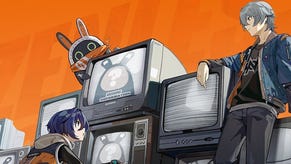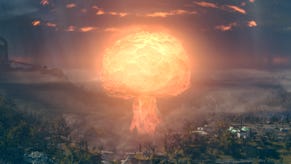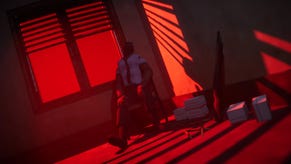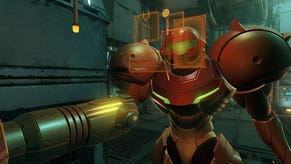Ono: Street Fighter III scared off gamers
SFIV intended as a "happy class reunion".
Street Fighter III closed off Capcom's brawling franchise to all but the most experienced players, leading to a more inclusive revamp for the fourth entry in the series, producer Yoshinori Ono has revealed.
Speaking in a typically insightful interview with Nintendo CEO Satoru Iwata, Ono explained that, like his own game Shadows of Rome, the third entry in the long-running franchise was made with only die-hard fans in mind.
"They were also the loudest people who made their voices heard," he explained. "I really understood how they felt, so I thought their voices were everything. But I didn't realise there were other people to whom the game could not resonate with at all until just about four or five years ago."
When asked by Iwata what he thought the series had lost in its third iteration, Ono replied, "That would be the narrowing of the 'paths'. We had locked the doors of the 'entrance' without even knowing it.
"By designating the 'entrance', it ended up becoming a game that only a select few could enter."
Still, Ono is a big fan of the game - which first hit arcades back in 1997 - despite the fact it took such dedication to master.
"It was a kind of pleasure you feel by being a part of an exclusive group. We game creators also became drunk with that feeling. Thankfully, even 14 years after its release, there still are world tournaments held for Street Fighter III!"
When designing Street Fighter IV, Ono set out to go in the opposite direction and make a game that would bring jilted Street Fighter II fans back into the fold.
"Since we can't equate the loudest person as everyone's opinion, we went back to the roots of the people who played Street Fighter and tried to analyse it," he explained.
"When making games, I always tell my staff to never forget going 'back to the roots' and the 'class reunion'. Going back to the roots means to look carefully into the very beginning where it all started.
"The class reunion means to think how we could let the former players who played the original to feel like joining it again.
"For example," he continued, "when you are going to a middle school reunion, men usually think about the girl they liked right away.
"They'd have these thoughts about how she's doing as they head on over to the reunion. But when they get there, everyone has changed and he doesn't know which one she is. Something like that. If it were me, I'd try to imagine lots of things about that girl on the way to the reunion.
"The people who played Street Fighter until their fingers hurt back in the '90s carry a sort of image in their hearts. We can't reuse what used at the time in the same way, but we should make a happy class reunion that every attendee can imagine. That's the kind of Street Fighter IV I wanted to make."
Things worked out rather nicely for Ono in the end. Street Fighter IV launched on PC, PlayStation 3 and Xbox 360 in 2009 to stellar reviews and strong sales.
Next up for the franchise is a 3DS version, due in stores on 25th March.


.png?width=291&height=164&fit=crop&quality=80&format=jpg&auto=webp)





